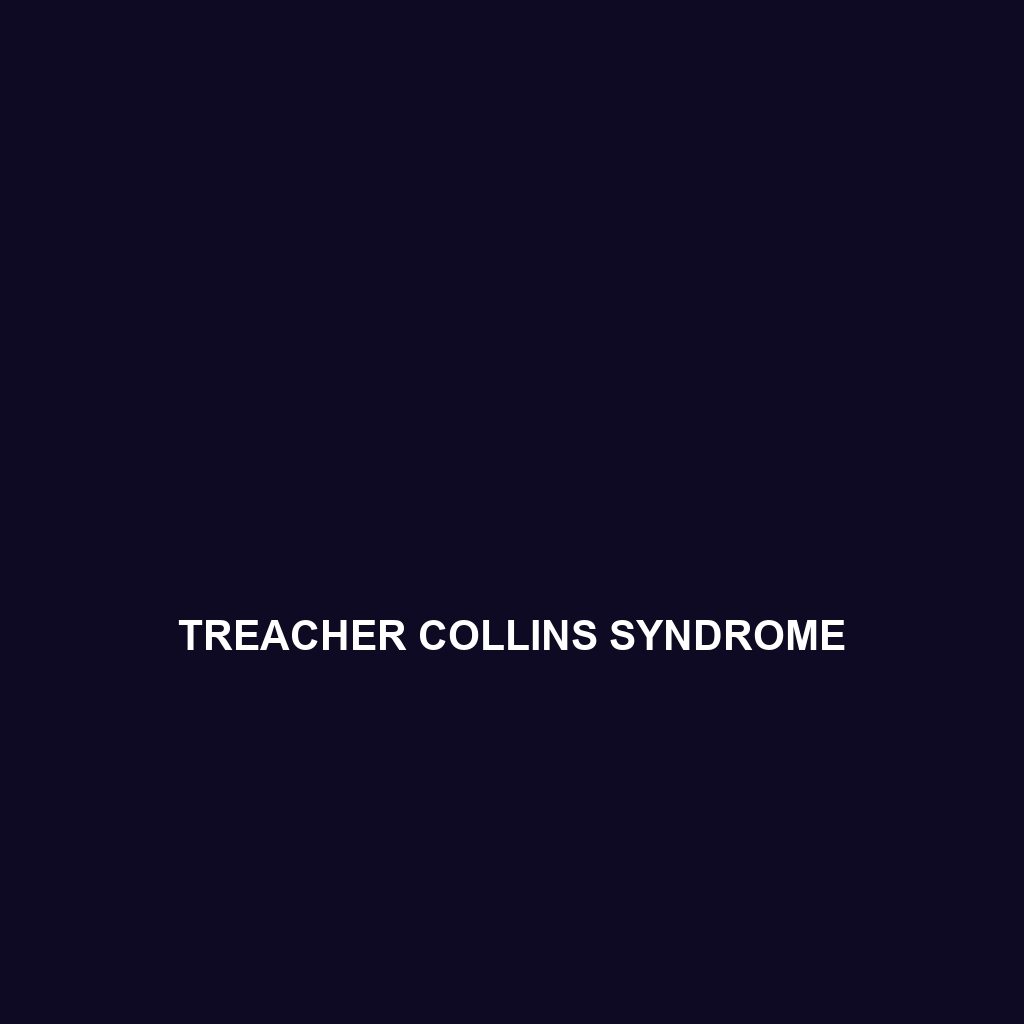Tag: autosomal dominant

Treacher Collins Syndrome
Explore the complexities of Treacher Collins Syndrome (TCS), a genetic disorder that affects facial development and bone structure, resulting in distinct cranial abnormalities. This post delves into the causes, symptoms, diagnosis, and treatment options for TCS, while also emphasizing the importance of early detection and support for those impacted. Join us as we dispel myths…
TCOF1
TCOF1: Definition and Description of TCOF1: TCOF1, or Treacher Collins Syndrome, is a genetic disorder characterized by craniofacial abnormalities. This condition arises due to mutations in the TCOF1 gene, which is critical for the development of bones and tissues in the face and skull. Individuals with TCOF1 may exhibit features such as underdeveloped cheekbones, a…
Nail Patella Syndrome
Nail Patella Syndrome: Definition and Description of Nail Patella Syndrome: Nail Patella Syndrome (NPS) is a rare genetic disorder characterized by abnormalities in the nails, bones, and kidneys. This condition is typically inherited in an autosomal dominant manner, which means only one copy of the mutated gene from an affected parent can cause the disorder…
Facio-Scapulo-Humeral Dystrophy
Facio-Scapulo-Humeral Dystrophy Definition and Description of Facio-Scapulo-Humeral Dystrophy Facio-Scapulo-Humeral Dystrophy (FSHD) is a genetic muscle disorder that primarily affects the muscles of the face, shoulder blades, and upper arms. It is characterized by progressive weakness and wasting of the muscles, leading to functional impairment. This condition is caused by a deletion of a specific region…
Facioscapulohumeral Muscular Dystrophy
Facioscapulohumeral Muscular Dystrophy Definition and Description of Facioscapulohumeral Muscular Dystrophy Facioscapulohumeral Muscular Dystrophy (FSHD) is a genetic disorder characterized by progressive weakness and wasting of the muscles in the face, shoulders, and upper arms. It is one of the most common types of muscular dystrophy, affecting approximately 1 in 20,000 people worldwide. FSHD is caused…